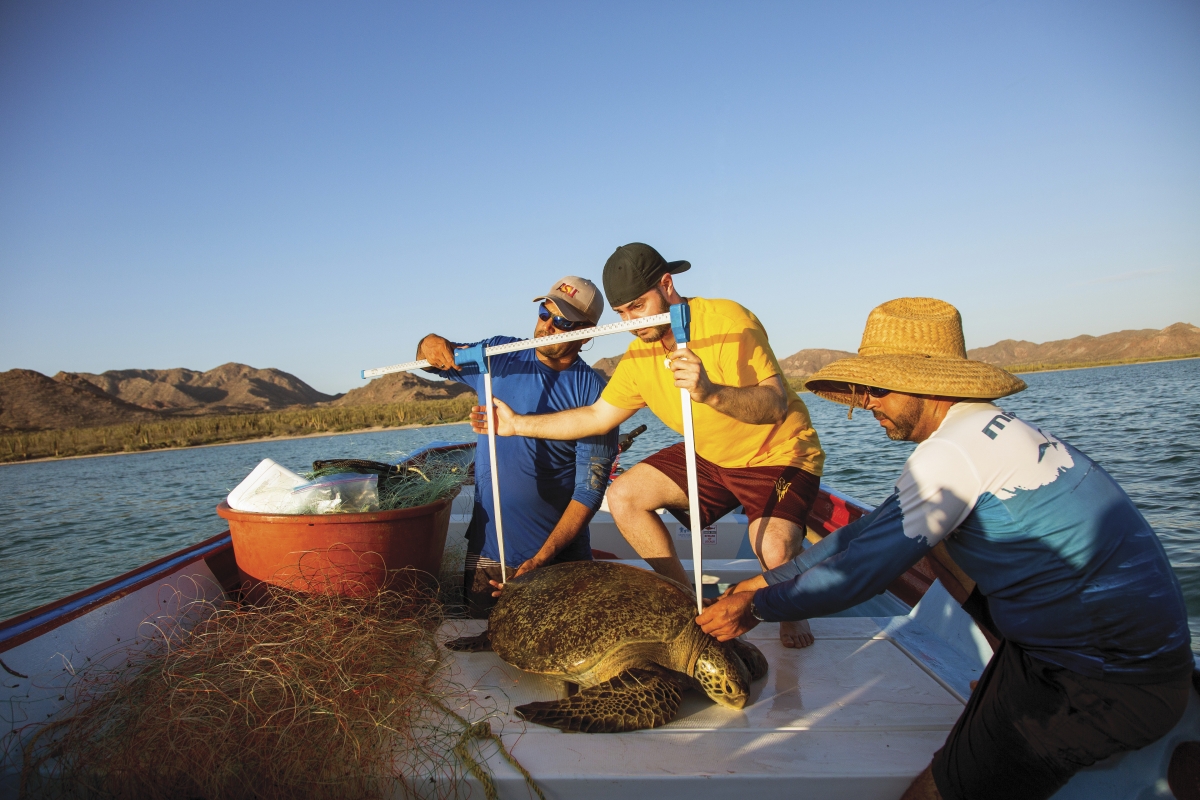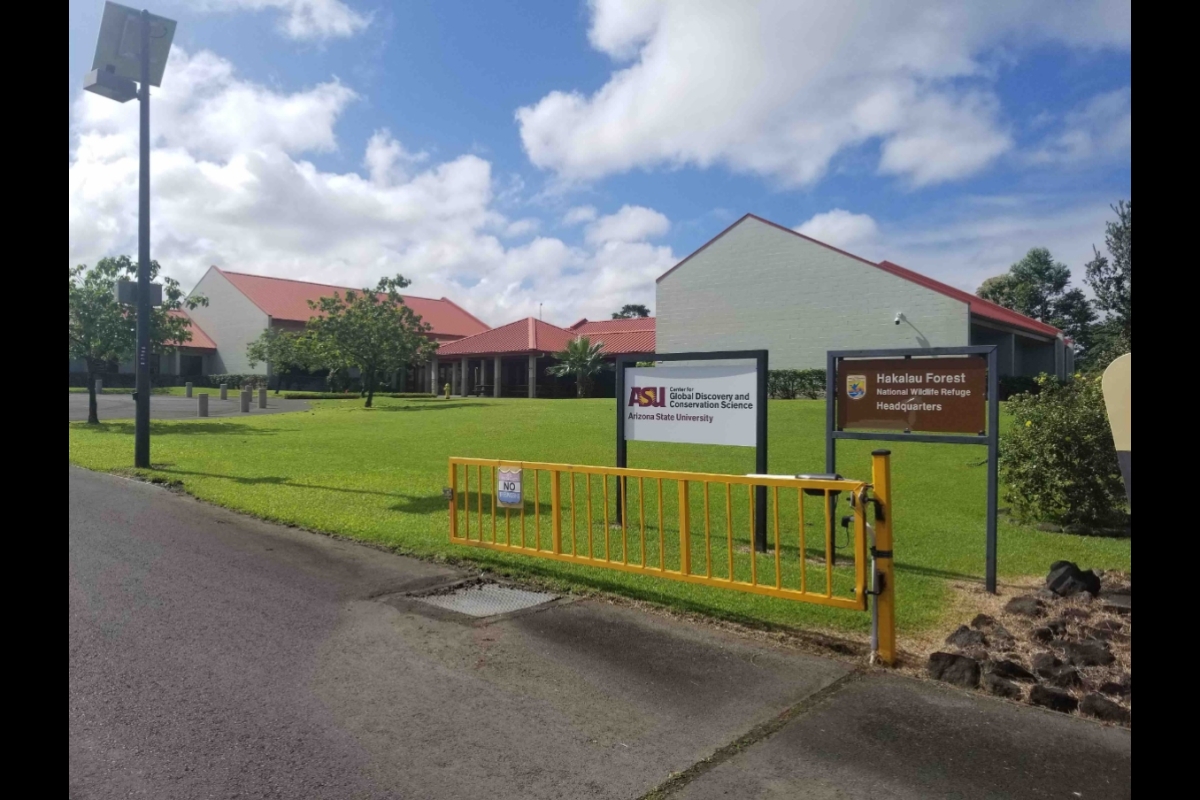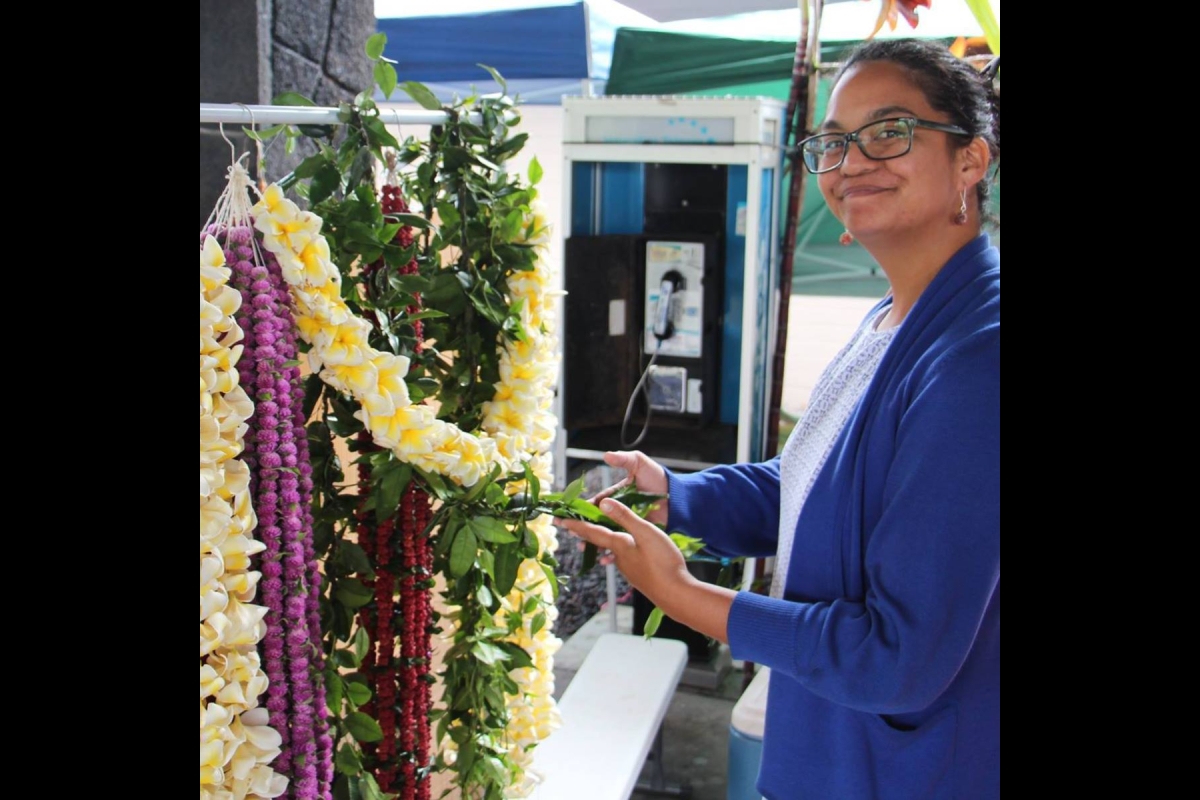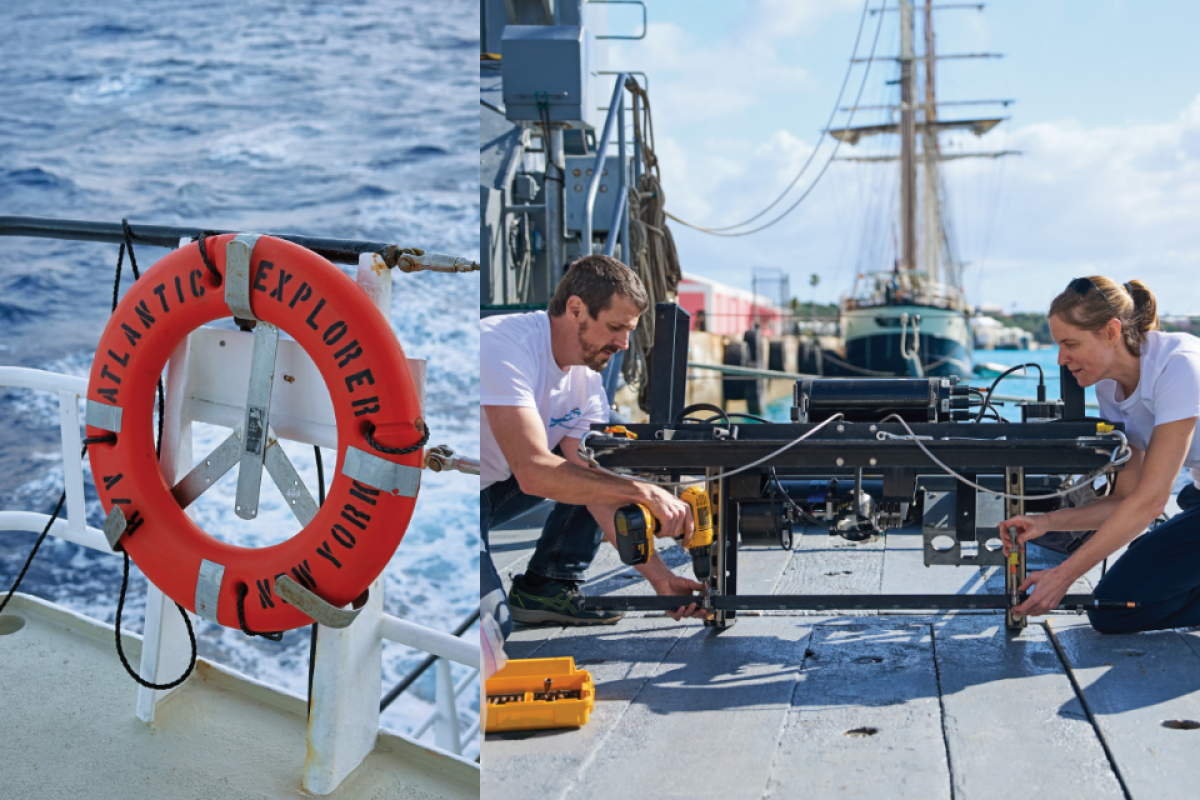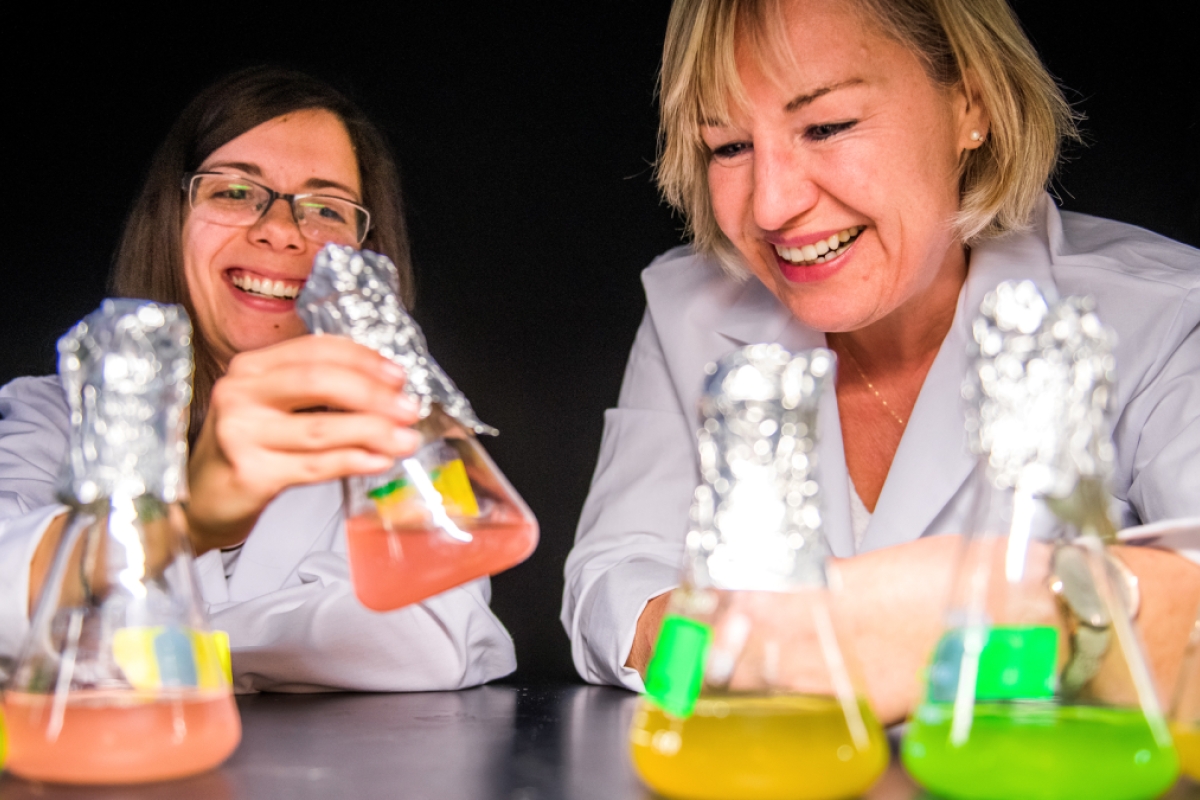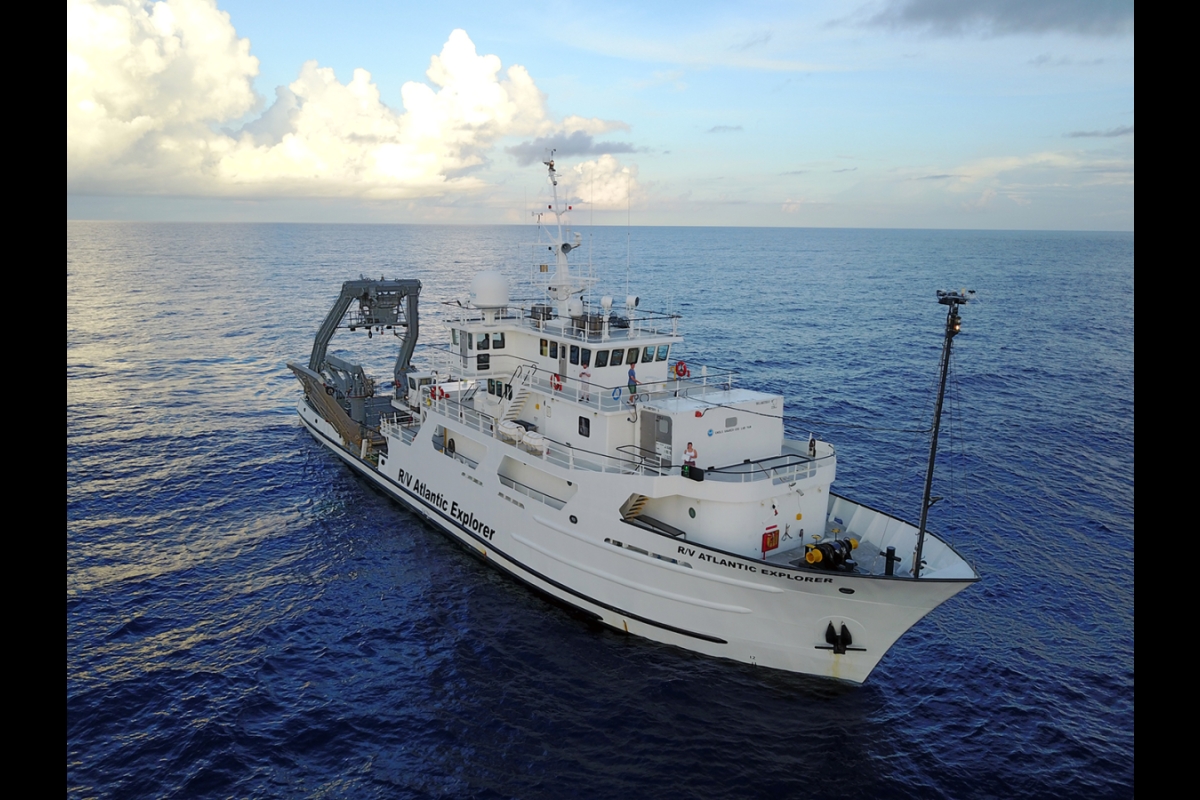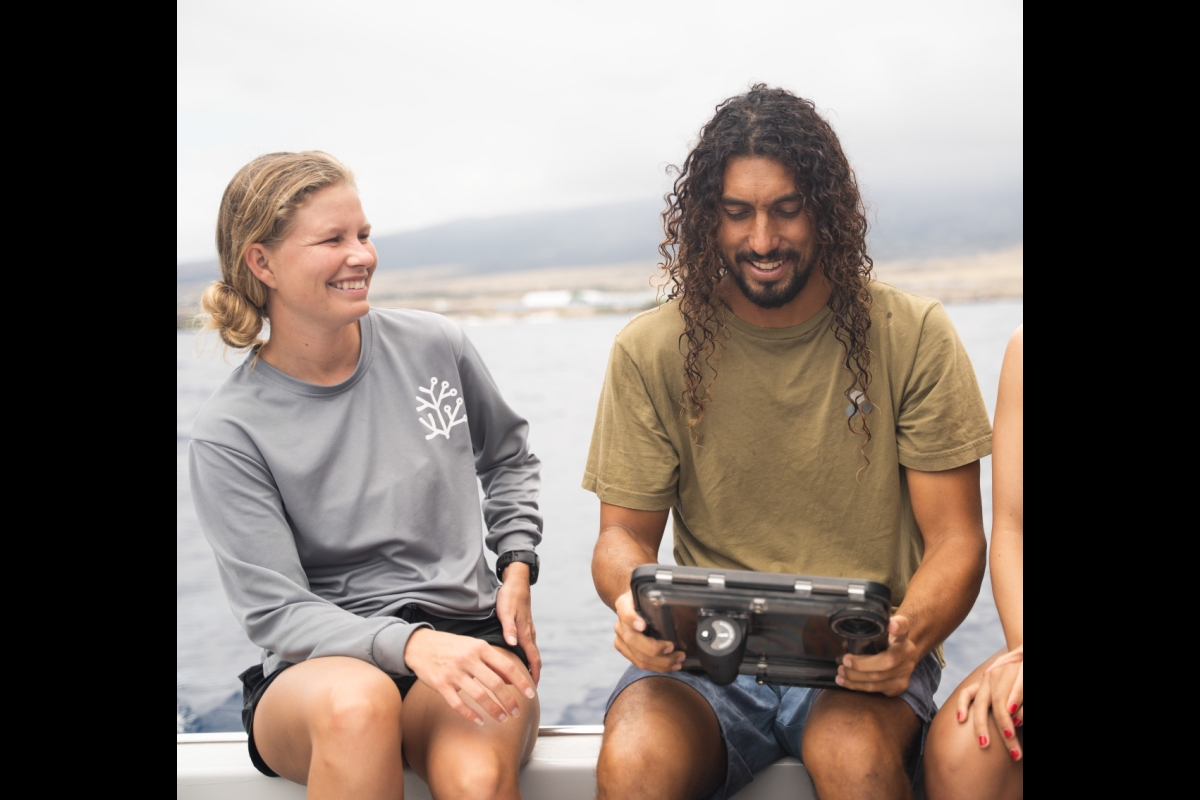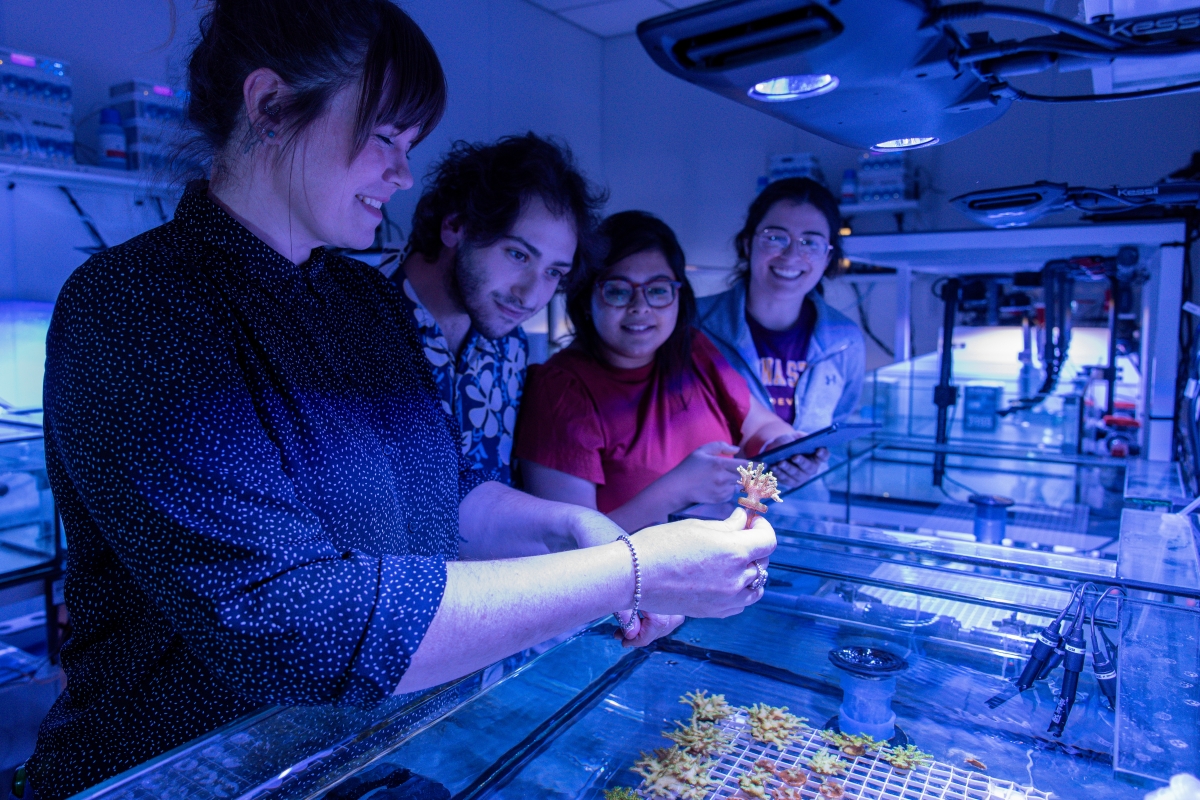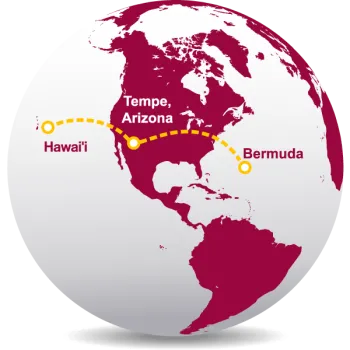ASU offers degrees to shape thriving ocean futures
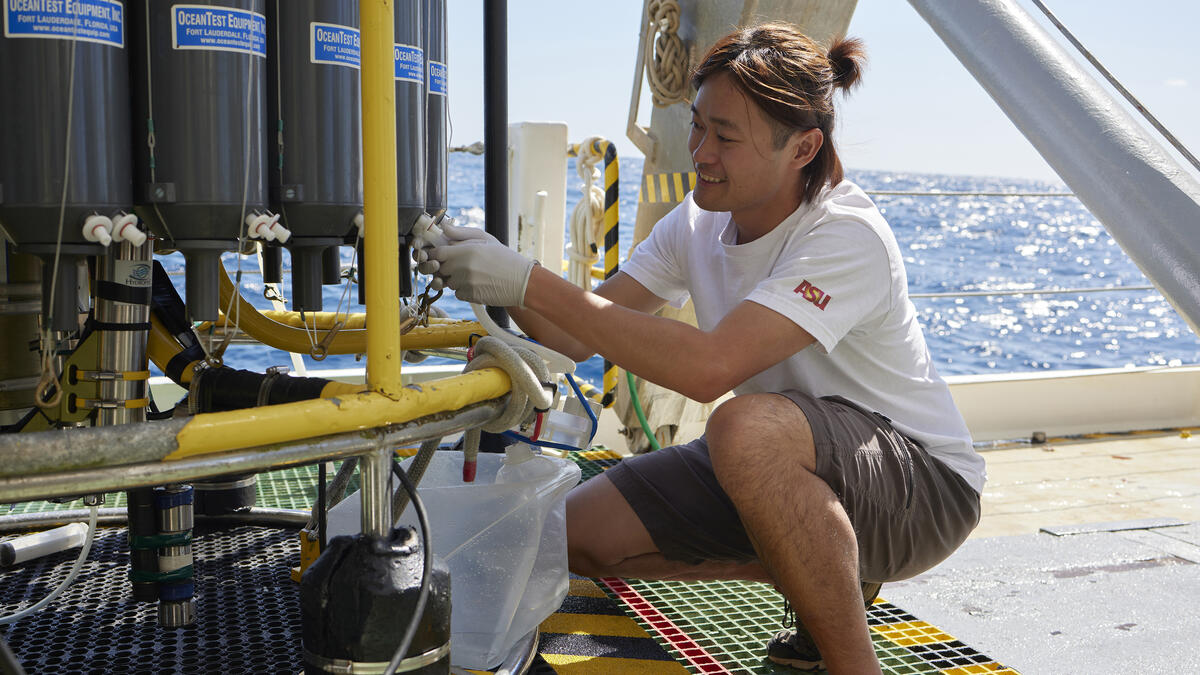
ASU doctoral candidate Yuuki Niimi aboard the RV Atlantic Explorer (RVAE), a research vessel managed by the Julie Ann Wrigley Global Futures Laboratory Bermuda Institute of Ocean Sciences. Photo courtesy College of Global Futures
Nearly half of the world’s population lives within 200 km of a coastline and depends on marine and coastal biodiversity for their livelihoods. In fact, the blue (or ocean) economy is a rapidly growing part of the global economy, expected to double in value by 2030.
The future of coastal and marine ecosystem resilience will ultimately require marine scientists who are trained to advance healthy coastal communities and marine systems through knowledge, partnerships and innovation.
To this end, Arizona State University launched four new ocean-focused degree programs within the College of Global Futures — a Bachelor of Science in ocean futures, a Bachelor of Science in ocean futures with a concentration in coastal and marine sciences, an online Master of Science in coastal and marine science and management, and a PhD in ocean futures.
Students are now eligible to enroll for a fall 2024 start.
These programs, housed within the School of Ocean Futures, prepare students to become coastal and marine stewards, community leaders, innovators and researchers capable of shaping the future of the world’s oceans.
“We’re excited to welcome the next generation of strategic thinkers to the ASU School of Ocean Futures,” said Peter Schlosser, vice president and vice provost of the Julie Ann Wrigley Global Futures Laboratory and acting dean of the College of Global Futures.
“This is a crucial time for our oceans. By combining experiential learning opportunities with access to advanced research facilities, our students are empowered to develop solutions for the challenges facing our oceans, and to create a future where all life thrives on a healthy planet.”
In support of ASUʻs mission of social embeddedness and linking innovation to public value, future graduates of the School of Ocean Futures will be equipped with the knowledge and skills to work with diverse communities and partners to create innovative solutions for our changing planet.
The offerings provide the base understanding of the processes governing global oceans, as well as threats to the ecosystems and human populations they support. They also provide a foundation in coastal and marine system science and focus on the social, economic and equity aspects of ocean stewardship. This includes the integration of intergenerational and Indigenous values in developing blue economies, coastal and marine protection and management, land–sea interactions, community-based stewardship, the impact of fisheries on ocean health and coral reef restoration.
Students will gain not only knowledge of integrated ocean science, but also skills in critical and futures thinking, information and digital literacy, and problem-solving, which are needed to become transformational community leaders.
There are already multiple ocean courses available that fulfill the SUST requirement in General Studies Gold, including SEA 101: Ocean Futures (Coastal and Marine Science), taught by Assistant Professor Amy Maas, and SEA 294: Ocean Conservation, taught by Assistant Professor Jesse Senko.
“We are embarking on a novel journey for ASU in offering for the first time a degree related to the study and protection of the oceans,” said School of Ocean Futures Founding Director Susanne Neuer.
“By shaping a new ocean program, we could design the content and sequence of courses to respond to the challenges facing our oceans in this time of rapid environmental change. We need an ocean-literate workforce who understands not only the science but also the effects of a changing ocean on coastal communities, and can develop solutions in a forward-looking manner.”
Beyond their work within the class, students have access to multiple experiential learning opportunities through which they will study marine organisms, ecosystems, marine conservation, ocean stewardship and sustainable use of marine resources. Study abroad opportunities are available in Bermuda, the Sea of Cortez, Antarctica and more.
The School of Ocean Futures leverages ASU's expertise in Arizona with its locations in Bermuda — through the Bermuda Institute of Ocean Sciences — and Hawaii — through the Center for Global Discovery and Conservation Science.
The Bermuda Institute of Ocean Sciences (BIOS) at ASU includes classrooms, laboratories, dormitories and vessels, which allows students to venture into the surrounding Sargasso Sea, one of the world’s most diverse open-ocean ecosystems, including the world’s most northern coral reefs.
ASU’s Center for Global Discovery and Conservation Science in Hilo, Hawaii, offers opportunities to study the Hawaiian Islands with its diverse array of marine life and ecosystems, including coral reefs, deep-sea habitats and pelagic systems, making it a prime location for marine research and conservation efforts. In addition, Hawaii’s tourism industry is driving the demand for marine science graduates who can help protect and preserve these resources.
“Our campus locations in Bermuda and Hawaii provide the School of Ocean Futures with direct access to the two major oceans on the planet and offer unique research and educational opportunities for our students,” Neuer said.
“BIOS has a long history of offering summer and fall courses, and we have integrated those into our curriculum as electives. Students can even live at BIOS for the fall semester and take courses in coral reef ecology, marine invertebrate zoology, scientific diving methods and obtain research experience. Students however are not required to travel abroad for our degrees; we have field opportunities that are closer by, such as in the Sea of Cortez and in the aquatic habitats of Arizona.”
The School of Ocean Futures degree offerings aim to grow the next generation of leaders who will advance ocean science and who will lead transformational changes in ocean societal perspectives and practices related to our coastal and marine systems.
More University news

ASU community exceeds goal, raises $835K for Valley of the Sun United Way
The Arizona State University community stepped up and raised over $835,266 for the Valley of the Sun United Way — exceeding the $800,000 goal for 2024.Of the total, $802,192.17 was raised through…

ASU launches online ocean futures undergraduate degrees
Our oceans make up three quarters of the planet’s surface and contain most of its biodiversity. Due to rapid and global changes, they are endangered — making more urgent a deeper knowledge of ocean…

ASU public affairs graduate programs rise to No. 11 in nation in US News & World Report’s 2025 rankings
Arizona State University rose to No. 11 nationwide for best graduate public affairs programs in U.S. News & World Report’s 2025 rankings, the magazine announced.The ranking, released April 8,…


